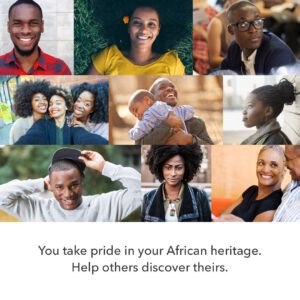February is Black History Month offering us another opportunity to talk about diversity in genetic research and why it’s important for all of us.

23andMe’s mission has always been to help people access, understand, and benefit from the human genome. Everyone should gain from the scientific insights we learn through research. That means people of all ethnicities. But that hasn’t happened because research — not just 23andMe research — but all biomedical and genetic research has been hampered by a lack of diversity.
A recently article published in the journal Nature found that less than three percent of the genome wide association studies published involve people of African Ancestry. And it’s not just African Americans who are being left out. More than 80 percent of biomedical research is focused on people of European ancestry.
There are very real repercussions when research is limited to just one group.
For example, a lack of diversity in research could lead to misdiagnosis. A recent study by researchers at Harvard looked specifically at how a gene mutation was misclassified among African American patients indicating that they were at risk for a serious heart condition called hypertrophic cardiomyopathy when in fact they were not. Basically the researchers found that the variants or mutations that caused a heightened risk in patients of European ancestry were not risky for those of African or other non-European ancestry.
By studying Europeans alone, we blind ourselves to discoveries that could be found in other populations that frankly could help all people.
So what can we do about it?
A lot, it turns out.
23andMe recognized early on that we needed to do more. In 2011 early in our company’s history, we launched something called the “Roots Into the Future Project,” enrolling 10,000 African Americans in a study meant to bring better understanding of the connection between DNA and diseases most relevant to African Americans. We have since added another 10,000 to the study. And we’ve steadily added additional efforts to improve diversity.
In November 2013 we kicked off our African Ancestry Project, which recruited people with four grandparents from Sub-Saharan Africa to improve our knowledge of African genetic diversity. Late last year we launched an even more ambitious initiative called the African Genetics Project, that enrolls individuals from 16 different African countries. The purpose is not just to help people with African ancestry uncover their African roots, but it could also help yield new insights into the TransAtlantic slave trade.
We know that the Africans enslaved in the Americas were not a monolithic group but individuals from different cultures with different languages who were forced together into slavery. We hope this study will help our researchers identify direct connections between locations in Africa and the Americas.
This isn’t the first time that we’ve looked at our data to gain insights that go beyond just health research. A little over two years ago our researchers published the first genetic portrait of the United States, illustrating the complex mix of African, Native American, Latino and European ancestry across the country and giving new insight into our social and political history.
Beyond that work, we’re also looking at how to leverage data we already have.
In early 2016, 23andMe received an NIH grant to improve how we study disease in African American and Latino populations. Both of these populations are “admixed,” meaning they have a mix of African, European and Native ancestry. By using something called mapping by admixture linkage disequilibrium, or admixed mapping, we believe we can identify disease causing genetic variants for conditions that are more prevalent among African Americans, such as high blood pressure, Type 2 diabetes and Asthma.
Then late in 2016, 23andMe launched the African Sequencing Project, which also received funding from the NIH. This effort will help 23andMe create a new reference panel for African Americans that we could share with the broader scientific community. This would make it easier for all researchers to do important health research in the African American community.
Find out more about our efforts here.